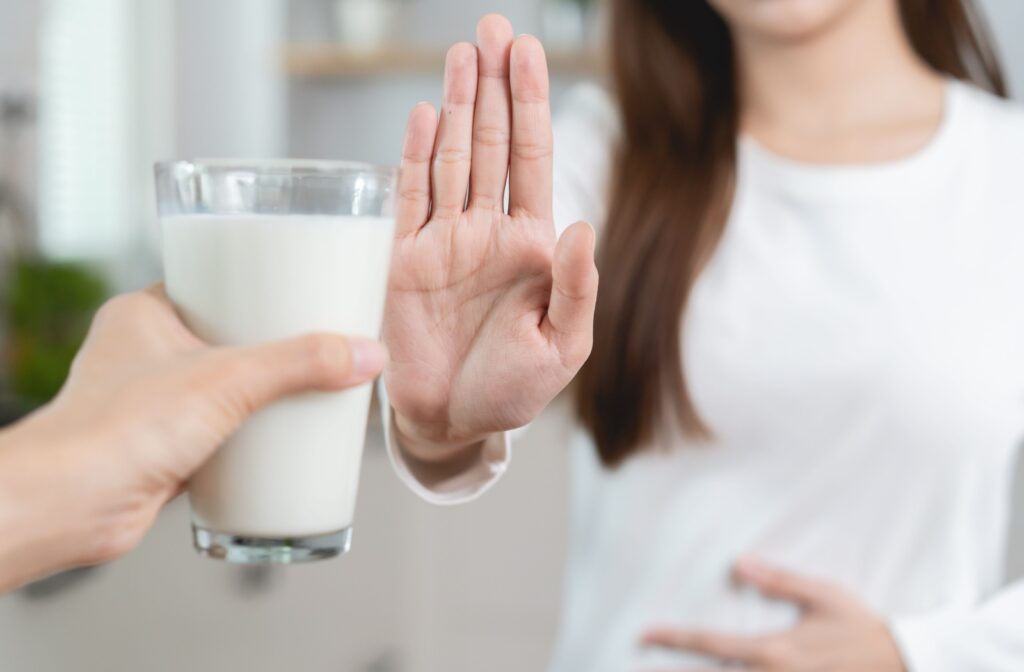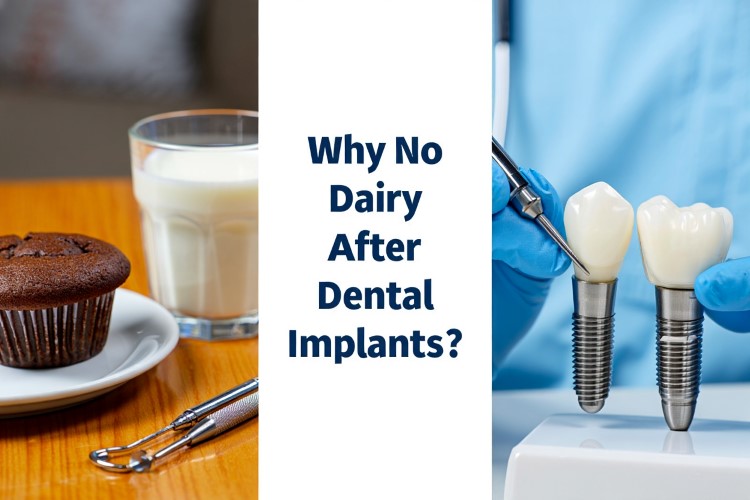Getting a dental implant is a big step towards fixing your smile and your oral health. But the adventure doesn’t end when the implant is put in. It’s important to take care of yourself after the treatment to make sure you recuperate and have long-term success. Patients are typically surprised to hear that they need stay away from dairy items after their dental implant procedure.
So, why can’t you eat dairy after getting tooth implants? Let’s break it down.
1. Dairy Can Get in the Way of Healing
People usually think that dairy foods like milk and yoghurt are good for you, but they’re not the best choice when you’re just starting to recuperate from an implant. This is why:
When the surgical site is still healing, lactic acid bacteria in dairy can sometimes cause inflammation or infections in the mouth.
Some dairy products may have natural enzymes or bacteria in them that can bother the incision or mess up the blood clot.
2. Dairy Can Make You Feel Sick After Surgery
After an implant surgery, doctors often give patients antibiotics and painkillers. Taking these medicines with milk or cheese can cause:
- Stomachache
- Feeling sick
- Throwing up
These side effects not only make recovery difficult, but they may also make it harder for the body to absorb the medicine.
3. The chance of getting an infection and a dry socket
Dry socket is more often linked to tooth extractions, however problems can also happen if the area around the implant doesn’t heal properly. Some bacteria that live in dairy products may make the following more likely:
- Infection at the location of the implant
- Healing took longer than expected
- Failure of the implant
4. Dairy Makes Mucus More Likely to Happen
Why else should you stay away from dairy? It might make more mucus, which could make you clean your throat or cough more often. This reaction, although seems small, can upset the blood clot or the location where the surgery was done, putting extra stress on the area that is mending.
What to Eat Instead?

- Eat soft, non-dairy meals that are good for your mouth and help it heal. Some good choices are:
- Potatoes that have been mashed
- Applesauce
- Smoothies that don’t have milk or yoghurt
- Eggs scrambled
- Almond milk and muesli
- Soups that have been blended (warm)
- For the first few days, stay away from foods that are spicy, crunchy, or too hot.
When is it okay to eat dairy again?
You can normally start eating dairy again after the first healing period, which lasts 7 to 10 days, depending on what your dentist says. Before going back to your normal diet, always talk to your dental surgeon.
Last Thoughts
It might seem unusual to avoid nutrient-rich dairy after treatment, but protecting the healing area around your dental implant is crucial. By skipping dairy for a few days and following your dentist’s dietary advice, you can support smoother recovery and long-lasting implant success.
For those seeking world-class care, Aesthetic Airways stands among the best clinics in Istanbul, offering advanced dental treatments in Turkey to restore your smile with confidence. Book your appointment today and start your journey toward a healthier, brighter smile.

